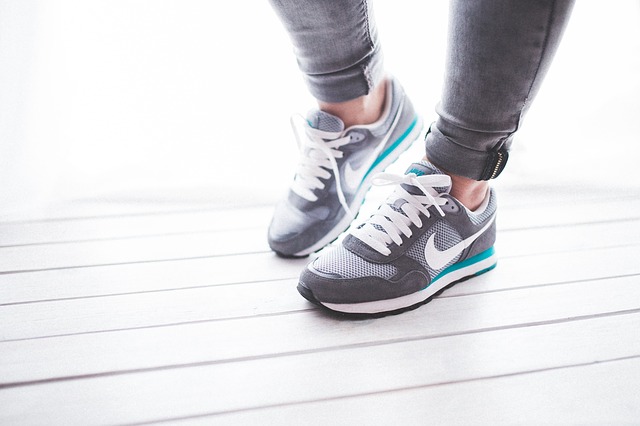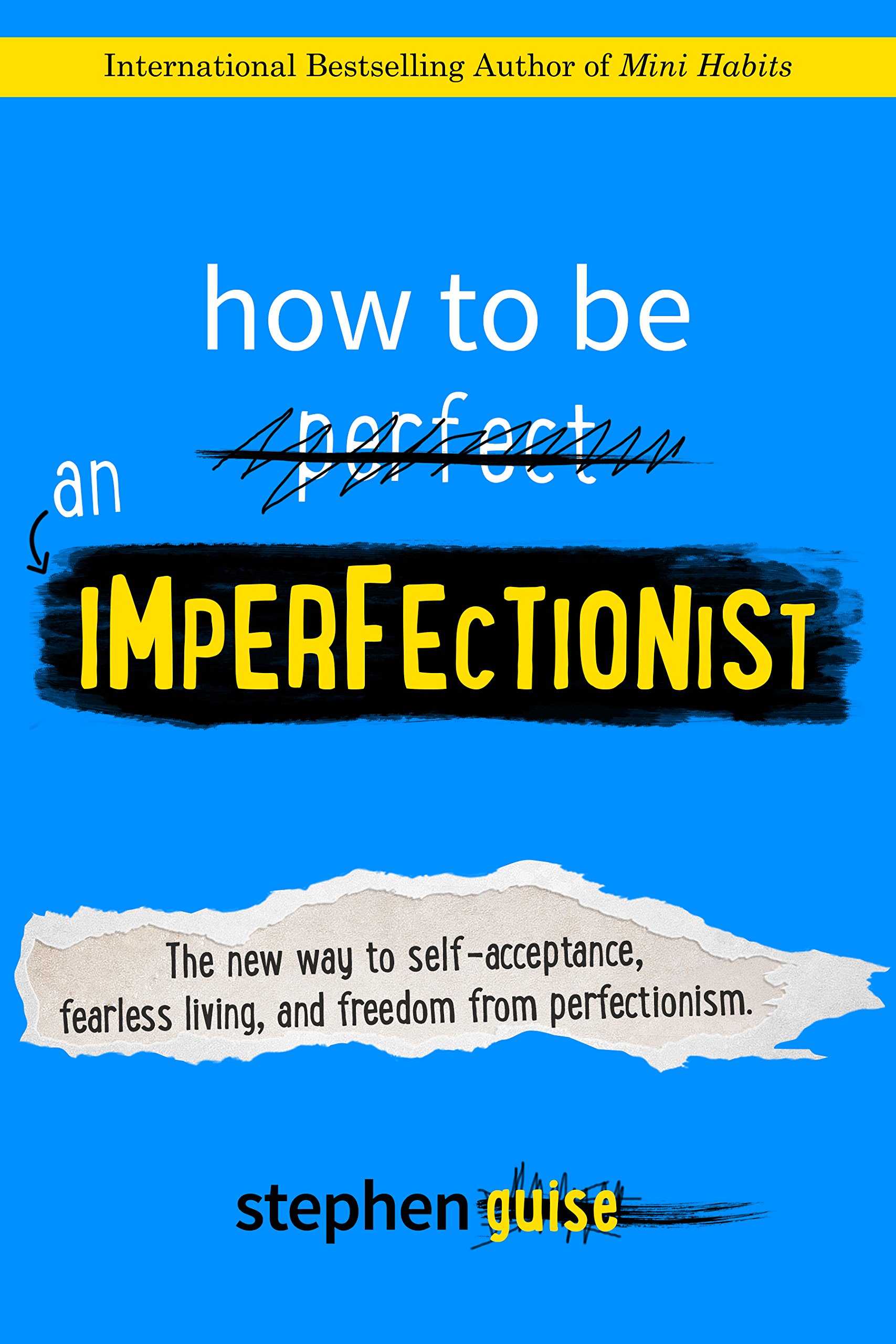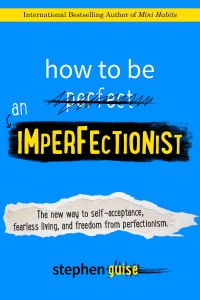I love using the line, “I’m bad at that” (or some variation thereof). The underlying message being, funny story: I have ADHD and I suck at some things.
I’m not proud of this.
In all fairness, it’s true. However, I suspect many of us use this mentality to avoid certain tasks and responsibilities. We use it as a reason not to challenge ourselves.
For years, I’ve proudly labeled myself “not a runner.” Though I might give you an excuse about sore joints, or a proclivity for excessive sweating, or the fact that running in hot weather makes me feel puffy, the biggest obstacle is in my head: I’m bad at creating and sticking to habits. I’ve long thought I could only maintain a running habit by running every day.

I never called this perfectionism because I thought it was just the cold hard facts. The first missed day marks the beginning of the end, and I don’t run again for years.
Then I picked up Stephen Guise‘s new(ish) book, How to be an Imperfectionist, and it opened my eyes to perfectionism’s toxicity for ADHD adults.
ADHD’ers seem like unlikely perfectionists. Our lives are swimming in imperfection, littered with screw-ups. And yet, perfectionism gives us an excuse, a reason to stay paralyzed.
Guise describes three primary ways perfectionism can paralyze us. All apply to my aversion to running.
- Context: without the perfect context, we can’t possibly succeed.
“Running before breakfast is best for me, but it’s dark outside! Maybe after daylight savings time ends…”
“I don’t own any running pants — only yoga pants.” - Quality: we must make sure we’ll be able to do it exactly right.
“Couch to 5K is embarrassing — there’s so much walking, I don’t even feel like I can say I went for a run.”
“I don’t think I can commit to daily runs right now.” - Quantity: we define success only as meeting or exceeding an arbitrary numeric goal.
“I bet I can’t even run a mile without stopping anymore.”
“If I don’t elevate my heart rate to 120 beats per minute for 30 minutes, I shouldn’t even bother.”
Quantifiable goals — like “I want to run for 30 minutes without stopping” or “I want to run every day” — give us something concrete to shoot for, but they also quantify failure. Not meeting your goal discredits all your hard work.
In the end, it’s easier to cling to my identity as someone who’s “not a runner” than to figure out how to make regular exercise work for me long-term.
Running, even under the guidance of a program like C25K, requires major league habit-forming skills. ADHD’ers endure constant blows to our self-image, and many of us will choose the couch as our fear of failure kicks in.
Guise points to insecurity as a major precursor to perfectionism:
Those who are secure in themselves are less perfectionistic because they have a positive affirmation bias, which means they’ll assume good things about themselves before considering negative things.
We’re so beaten down by a lifetime of failure, of broken (good) habits, of disappointment in ourselves. Why wouldn’t we turn to perfectionism for protection? Why wouldn’t we seek out explanations for why our failure — or failure to even try in the first place — was preordained, out of our control?
A week ago, I bought the C25K app. I went running in my yoga pants (a surprisingly good stand-in for running pants), in the dark, and I obeyed the app’s commands to walk and run in short intervals. I succeeded in running three times in one week, which is both trickier and more sustainable than running every day. I promised to be kind to myself, to accept any small step in the right direction as better than nothing.
Because it is. Even if we know we’re going to mess up, it’s okay to try. When we do mess up — and we will — it’s okay to try again.
I challenge you to do something, anything, that you’ve been avoiding due to the kinds of perfectionism listed above. Give yourself permission to do a crappy job. Get out there and take one step closer to where you want to be. Eventually, you’ll get there, but only if you have the courage to start — and restart — an imperfect journey.
Hey there! Are you enjoying The ADHD Homestead?
Here's the thing: I don't like ads. I don't want to sell your attention to an advertising service run by the world's biggest data mining company. I also value my integrity and my readers' trust above all, which means I accept very few sponsorships/partnerships.
So I'm asking for your support directly. For the cost of one cup of coffee, you can help keep this site unbiased and ad-free.
Below you will find two buttons. The first lets you join our crew of Patreon pals and pledge monthly support for my work. Patrons also have access to my Audioblogs podcast. The second takes you to a simple donation page to pledge one-time or recurring support for The ADHD Homestead, no frills, no strings. Do whichever feels best for you!


